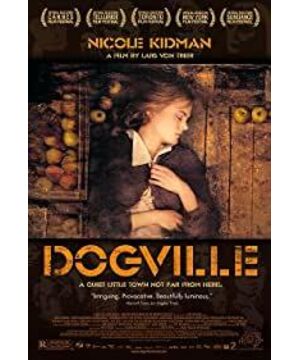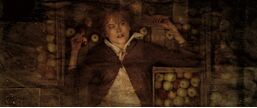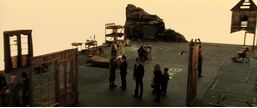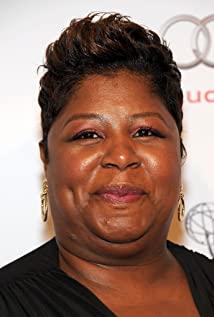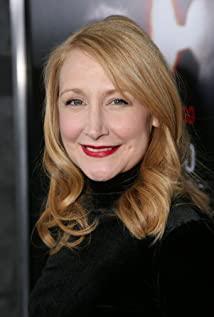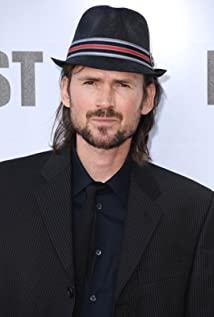At the beginning of the movie, I was very uncomfortable. The house has no walls, and the division of all the buildings is simple. Use chalk to draw a line on the ground as a distinction. The movie is cold and blunt, and the plot can even be a bit illogical—it just tells you the ins and outs of the whole story. As for the unreasonableness, it doesn't want to tell, and you don't need to think about it.
Grace fled to a village and asked to be taken in. The beginning of the story is very warm and beautiful, hard-working and kind-hearted people, and communities that help each other, but when people start to discover that their own interests may be violated, everything changes.
All the inhuman abuses Grace experienced in the film are "public", which is also in line with the feature of "building without walls". One person is always a little nervous when doing evil, but when a group of people, especially a relatively closed group collectively commits evil, everything becomes logical. It can even be said that they don't think they are doing bad things.
At the end of the movie, Grace burned down the village. I think it was very relieved. In fact, in modern society, people often imagine lynching to solve problems. Kindly Kaneko, and a certain novel by Keigo Higashino, when the judgment of the law cannot meet the demands of the victims, they often feel that justice is not on their side, and the law cannot protect themselves-"Then it’s up to me. To defend my dignity". You cannot judge whether it is correct or not, after all, we have never experienced it.
View more about Dogville reviews


